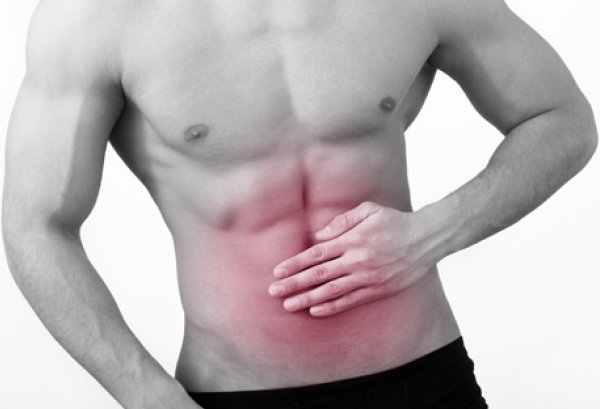
Indigestion is a common digestive problem. It is another name for upset stomach or burning feeling or pain in the upper abdomen which occurs normally after heavy meals. This is also referred to as Dyspepsia. Today many people tend to skip breakfast/lunch/dinner due to less availability of time and whenever they feel hungry they consume fast food items. They take much time to digest because they are heavy for stomach .This leads to indigestion, headache and pain in stomach. Indigestion can be caused due to the problems in digestive tract such as gastro esophageal reflux disease, peptic ulcer disease, abnormality of pancreas or bile ducts. The indigestion may be related to abnormal motility and the squeezing or relaxing action of the stomach muscle.
Symptoms of Indigestion
1. Uncomfortable Fullness
2. Burning feeling or pain in the abdomen
3. Burping or Belching
4. Feeling uncomfortably full after a normal size meal.
5. Bloated feeling in stomach
6. Acidic taste
7. Nausea or vomiting
8. Gas formation
9. Constipation
10. Acidity
11. Laziness
12. Weakness
13. Headache
14. Pain in the lower legs
Causes of Indigestion
Indigestion can be due to improper diet, medical conditions, faulty lifestyle and regular intake of certain medications. Causes of indigestion can be-
1. Improper eating habits.
2. Eating at irregular times
3. Smoking
4. Gastroesophageal reflux disease
5. Ulcers
6. Infections in the stomach
7. Thyroid Disease
8. Chronic Pancreatic
9. Drinking too much alcohol
10. Stress
11. Certain Antibiotics
12. Painkillers
13. Excess intake of caffeine
Diagnosis of Indigestion
If problem persists for more than two weeks or there is difficulty or pain in swallowing, weight loss, loss of appetite, blood in vomit, frequently vomit, the patient should visit a good doctor. In order to know any underlying problem for indigestion, consult a doctor. The doctor can ask for symptoms, medical history then perform physical examination. X-ray of the stomach and small intestine, blood test, breath test, urine test may be prescribed by the doctor to determine the presence of certain bacteria like helicobacter pylori in the stomach. In order to determine whether any abnormality is present in upper abdomen, an upper gastrointestinal endoscopy is carried out. Abdominal CT scan can also be taken. Gastric emptying study is carried out if other tests won’t conclude any results.
Treatment methods
On the basis of symptoms and reasons of indigestion, certain medications are given which help in relieving like Antacids (Alka-Seltzer, Maalox, Mylanta, Rolaids, riopan),antibiotics, pro kinetics(metoclopramide), H2 receptor antagonists (ranitidine, cimetidine, famotidinenizatidine), antidepressants, Proton pump inhibitors (omeprazole, pantoprazole)
To get relief from indigestion you should bring some changes in lifestyle like:
1. Eat smaller and frequent meals throughout the day.
2. Chew your food completely and then swallow it.
3. Increase the intake of fruits, green vegetables, pulses, milk, curd and other dairy products.
4. Try to avoid coffee or tea at night.
5. Try to avoid caffeine.
6. Stop smoking.
7. Stop drinking alcohol.
8. Take food at proper time.
9. Mix lemon juice in warm water. It can be a better remedy for indigestion.
10. Drinking buttermilk also improves digestion.
11. Avoid citrus foods or which contain acids like tomatoes.
12. Do not exercise after meals.
13. Avoid wearing tight fitted clothes as they compress stomach.
14. After taking a meal, wait at least for three hours before going to bed.
15. Take a small fresh piece of ginger with salt and chew it before taking meals
16. Drinking cold milk in case of indigestion gives immediate relief.
17. Find ways to reduce stress.
18. Doing exercise daily strengthens and boosts the immune system.
19. Avoid fast food items like burgers, noodles, pizza.
20. Avoid oily foods.
21. Avoid cheese, butter. In case you need cheese, use low fat cheese in small quantity.
22. Drink at least 8-10 glasses of drinking water.
23. Eat boiled vegetables once in a week as it relieves the stomach.
24. Consume high fiber foods like whole grains, bell pepper, vegetables like beans, carrots, and fruits with peel.




